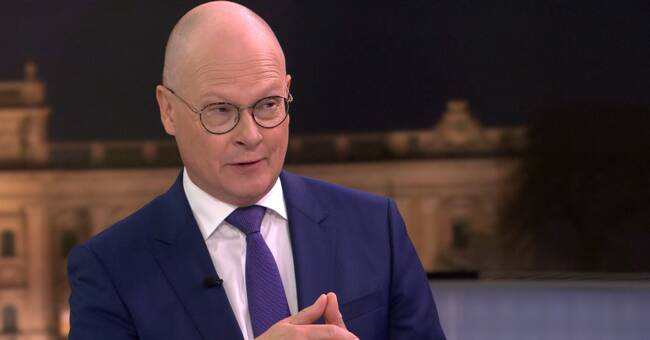Prime Minister Stefan Löfven will resign this autumn and will then be replaced by a new party leader, who will also try to be appointed Sweden's next prime minister.
Löfven's government declaration on Tuesday thus became his last.
A government declaration without major news, but where he clearly pointed out the government's most important priorities for the future;
jobs, the climate, welfare and security.
It undeniably felt a little strange to listen to these commitments with the knowledge that the Prime Minister himself will resign shortly.
In addition, in a very uncertain political situation.
It is often said that there are never ideal times for a departure.
So it may be.
But Löfven's departure hardly takes place under favorable circumstances.
The government has been cut short after this summer's government crisis with shaky support in the Riksdag.
The collapse of the January agreement also means that the government may have major problems getting its budget through the Riksdag.
In that very situation, Löfven chooses to resign.
"A nightmare scenario"
The government's strategy is clear.
By submitting a budget bill with tailor-made proposals for the Center Party and the Left Party, the goal is to persuade both of these parties to vote yes to the government's budget in a final vote.
Nobody knows yet if this will happen.
The political efforts are high for both sides.
Without the support of C and V, the government's budget will probably fall and instead the Moderates' budget motion will be voted through.
A nightmare scenario for a new Social Democratic party leader.
In addition, the budget vote can be closely linked to the Prime Minister's vote.
At the beginning of November, the Social Democrats' party congress elects a new party leader, who will then be tried as prime minister.
Here, too, C and V play a key role.
If they release a new Social Democratic prime minister, it is likely that they will also vote in favor of the government's budget.
The alternative is that a new Social Democratic prime minister is forced to rule on the political opponents' budget during the election year 2022. Sure, Stefan Löfven has done it twice before, but it was in both cases immediately after a parliamentary election.
Joining an election movement on the opposition's economic policy is a completely different matter.
Learn to keep the government on its toes
How it will go in both the budget and prime ministerial votes is still unclear.
C and V are supposed to try to keep the government on their toes for as long as they can.
Regardless of the outcome, the autumn will give a clear indication of the election campaign next year. If the Social Democrats can gather the red-green parties, including the Center Party, a new Social Democratic party leader has good prospects for governing further. The Center Party's position this autumn on both the budget and the Prime Minister can thus be interpreted as a message on the government issue also ahead of the parliamentary elections next year.
For the Left Party, the situation is different. The party is firmly rooted in the far left of Swedish politics and really has no alternative but to try to cooperate with the Social Democrats. With today's distribution of seats in the Riksdag, however, there are no prerequisites for such a government. Nor does anything in the opinion polls indicate such a movement in the Swedish electorate, even though the election result in Norway creates hope among politicians on the left.

